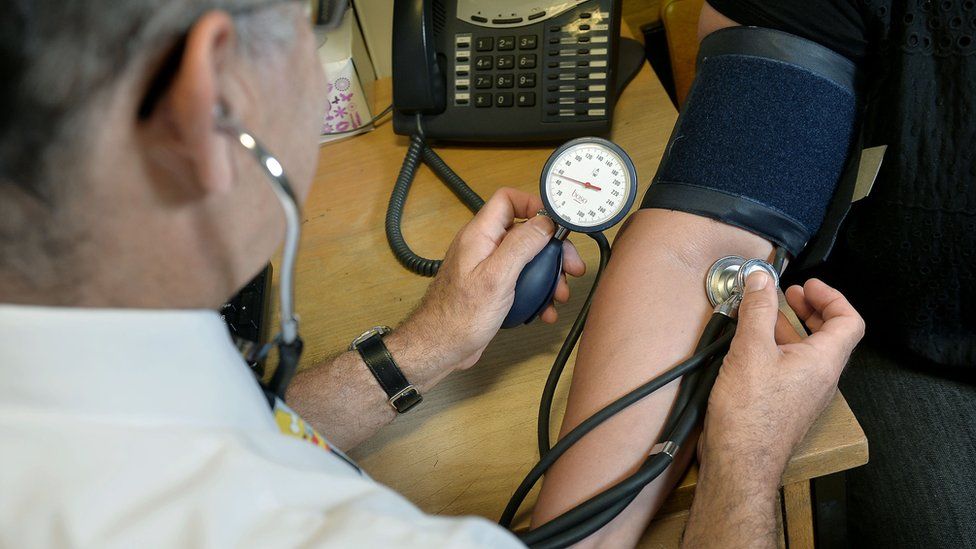
By Aileen Moynagh & Marie-Louise Connolly
BBC News NI health team
Specialist GP clinics in Northern Ireland set up to help tackle hospital waiting lists are to have their services cut by 50%.
The GP Elective Care Service covers medical procedures such as dermatology, gynaecology and minor surgery.
The reduction in funding also means vasectomies will no longer be carried out by GPs from October.
Stormont’s Department of Health said it would work with GPs to continue services within the available funding.
BBC News NI has seen correspondence from the department which confirm the changes.
In a statement the department said £2.1m had been secured to support the continuation of the services the the end of March 2024.
Dr Alan Stout, the chair of the British Medical Association’s GP committee, said the change would affect patients.
“Now patients, with the downturn in numbers, are going to end up on waiting lists, it’s just going to put pressure on another part of the system and we are going to see waiting lists inevitably increase further,” said Dr Stout.
The health service in Northern Ireland is in crisis management mode, says Dr Alan Stout
Between November 2018 and March 2023, more than 51,000 patients have been seen through the GP Elective Care Service.
Dr Stout said it was “a really good example of transformation” and “a project which is actively reducing waiting lists but it is being downturned”.
The service was also established to enhance GPs’ skills by letting them train and practice a certain skill such as gynaecology and dermatology procedures.
Dr Stout said the health service should be having conversations about extending the “repertoire of services because they have been shown to be so successful” rather than “downturning them and reducing the numbers”.
“We put a lot of time, a lot of effort, we upskill people, we get people to commit to delivering these services and that can just be wasted if these are stood down completely,” said Dr Stout.
He said the decision on how the money was spent is made by the department’s Strategic Planning and Performance Group (SPPG) and then authorised by the Department of Health.
“We are in crisis management at the moment,” he said.
“We are firefighting and the pressure that is put on the people in SPPG and in the department is huge, to make cost savings.
“What tends to happen is that they look for relatively easy cost savings, so for money that is not committed year to year and that is relatively easy to stop.”








